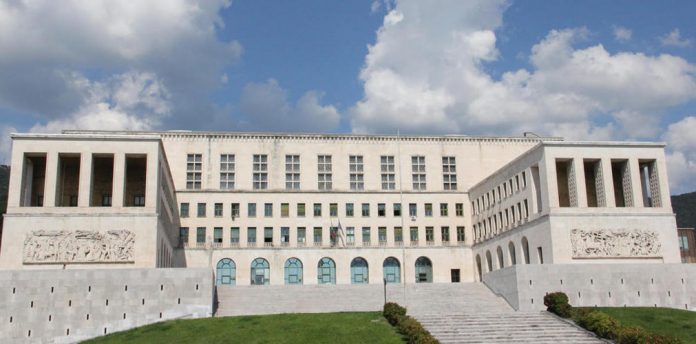by InTrieste
A groundbreaking initiative aiming to address the pervasive issue of plastic waste in European waters was unveiled on Monday at the University of Trieste. The Wastereduce project, a collaborative effort between Croatia and Italy, is part of the sixth European Territorial Cooperation Program Interreg 2021-2027.
This green initiative, set to span two and a half years, seeks to improve waste management in protected areas and Natura 2000 sites by fostering innovative detection and intervention methods. The project brings together research institutes, local administrations, environmental and natural resource agencies, non-governmental organizations, and service companies.
Eight partners from the regions of Friuli Venezia Giulia, Veneto, and Istria are involved in the project: the Institute of Agriculture and Tourism of Poreč (serving as the consortium leader), the Department of Life Sciences at the University of Trieste, the Istrian Region, the Veneto Regional Environmental Protection Agency, the managing body of Istria’s nature reserves “Natura Histrica,” the Croatian Association for Nature, Environment, and Sustainable Development “Sunce,” ETRA SpA (a benefit company based in Bassano del Grappa, Treviso), and Etifor – Valuing Nature, a spin-off of the University of Padua.
Funded by the European Union with over €1.6 million, Wastereduce addresses alarming data from the European Community predicting a nearly threefold increase in plastic waste entering aquatic ecosystems by 2040. The current rate of 9-14 million tons per year (2016 data) is expected to surge to 23-37 million tons per year. About 80 percent of this marine waste originates from land-based sources, including inadequately managed landfill waste, littering on beaches and coastal areas, river runoff, and coastal tourism, as well as directly disposed or accidentally released waste from ships.
“These materials, particularly plastics, cause severe economic damage, impacting coastal communities, tourism, navigation, and fishing, and they pose significant threats to human health and biodiversity,” said Dr. Barbara Sladonja of the Institute of Agriculture and Tourism of Poreč, the project’s coordinator. “Our aim is to engage as many local entities, institutions, and individuals as possible from the start to actively support societal change towards a more sustainable and low-impact future.”
The project’s approach aims to minimize human activity pressures on protected areas and Natura 2000 sites by proposing solutions to reduce waste dispersion and developing cross-border cooperation mechanisms. These mechanisms will monitor and identify critical areas where waste accumulation requires precise management. Complementary behavioral psychology studies will aim to promote habit changes among visitors to protected areas, who may knowingly or unknowingly contribute to environmental degradation.
“A key challenge will be understanding how the development of artificial intelligence can support remote monitoring systems to control waste accumulation in valuable natural areas,” said Prof. Giovanni Bacaro, a professor of Environmental and Applied Botany at the University of Trieste and project representative for the Department of Life Sciences. Advanced technologies, including satellite imagery, will be utilized for territorial analysis to optimize waste collection points.
Citizen involvement at various levels will be crucial for the project’s success. Education and awareness campaigns will focus on engaging citizens, whose feedback will also inform new waste management policies by relevant entities and project partners. These policies are expected to translate into concrete actions to reduce, mitigate, and prevent waste pollution in natural reserves, rivers, and seas. Additionally, the project aims to increase the attractiveness of natural reserves for visitors, thereby enhancing the tourism value of the involved areas.
For more information, contact wastereduce@units.it.





























